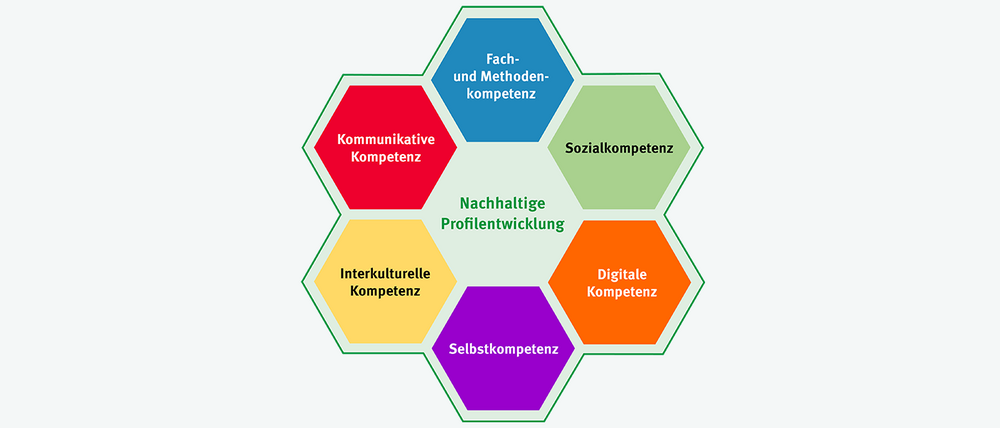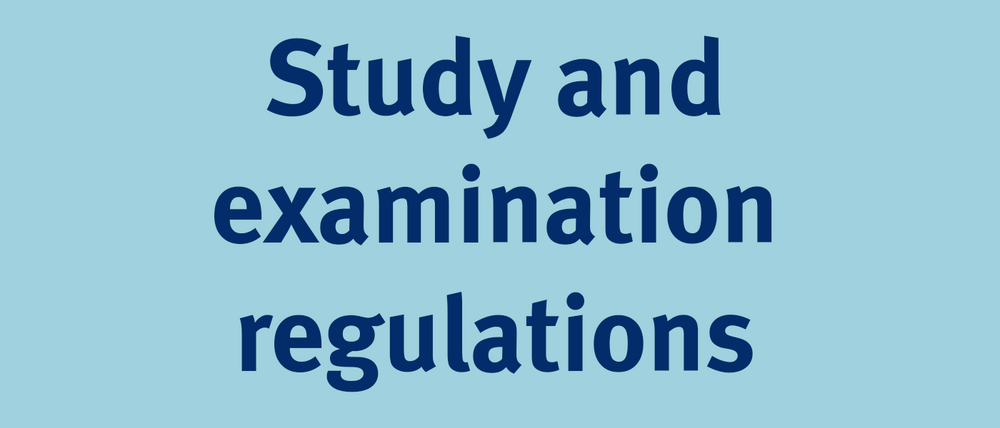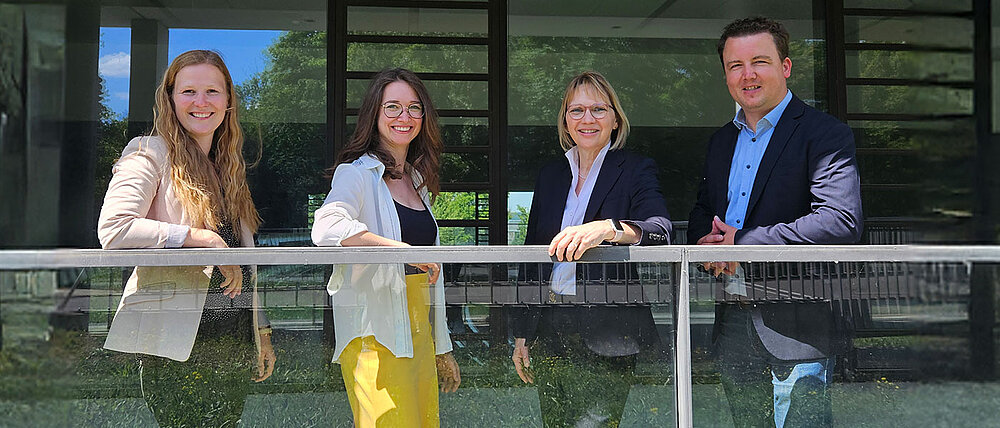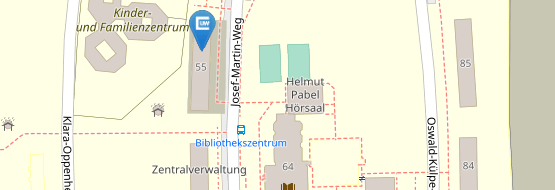Professional Skills Certificate
Fit for the future! With the additional study programme "Professional Skills Certificate", you will acquire valuable additional qualifications that will prepare you specifically for the global labour market of tomorrow - even for professions and fields of work that are hardly foreseeable today. The certificate strengthens your ability to adapt flexibly and responsibly to new challenges.
As part of the additional study programme, you choose individually from six central areas of competence and thus document your personal development path:
Whether you are studying for a Bachelor's, Master's or doctorate, the "Professional Skills Certificate" is an excellent addition to any application portfolio. It provides you and your future employer with proof that you have a high degree of self-organisation and decision-making skills to best meet the requirements of the world of work 4.0.
-
Recognising your own strengths and making them usable for the job market or developing untapped potential on an individual basis
-
Learn to think interdisciplinarily, hone interdisciplinary skills and present yourself confidently and with communication skills
-
Actively shaping the future - with critical thinking, adaptability, initiative and participatory goal setting
The Professional Skills Certificate consists of 20 ECTS that you can acquire over a period of four semesters - 10 ECTS from the compulsory area and 10 ECTS from the elective area, from which you can choose two modules. This means that you must attend a total of four modules, each worth 5 ECTS. A module or competence area is made up of three to six courses, which you can select yourself from our semester programme. We recommend conducting a potential analysis at the start of your certificate programme to help you define your profile more precisely.
1. Two modules from the compulsory area (10 ECTS)
- Communicative competence (5 ECTS)
-
Self-competence (5 ECTS)
2. Choice of two modules from the elective area (10 ECTS)
- Professional and methodological competence (5 ECTS)
- Digital competence (5 ECTS)
- Intercultural competence (5 ECTS)
- Social competence (5 ECTS)
3. Examination (certificate with a total of 20 ECTS)
You can start the certification programme in either the summer or winter semester. Ten students will then be selected from the applications by lottery. Multiple applications are possible.
Applications for all winter semesters must be submitted by 15 July, and applications for all summer semesters must be submitted by 15 January of the respective year.
Procedure
- Fill out the application form (German only)
- Send the application form with your certificate of enrolment to jmu-psz@uni-wuerzburg.de
- After the deadline, we will inform you of your admission by email
Communicative competence
Compulsory area
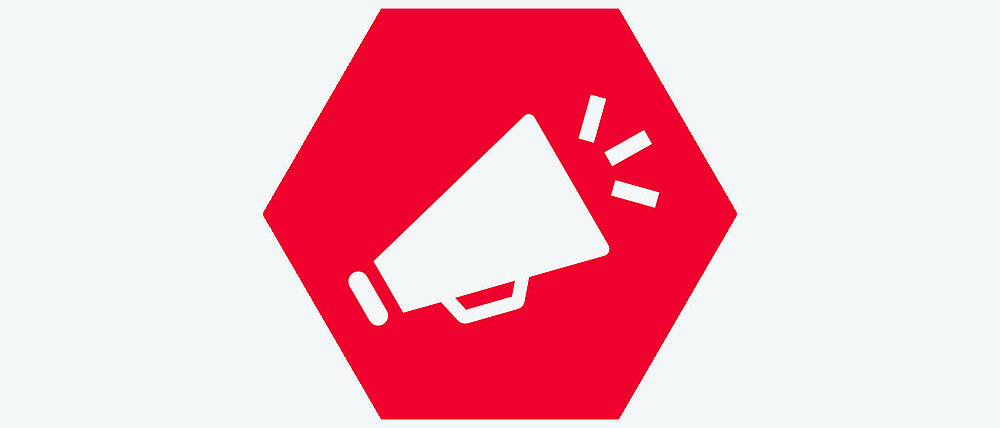
In this module, you will learn how to assign meaning to social interactions that serve to exchange information, thoughts, experiences etc. within a current situation and to draw conclusions for successful communication. The ability to correctly interpret non-verbal signals such as body language, facial expressions and gestures also plays an important role here. The module trains a whole bundle of skills and competences, which are used simultaneously and with different weightings depending on the situation and context. A prerequisite for being able to understand and organise communicative situations is knowledge of important communication models, concepts and techniques.
Self-competence
Compulsory area
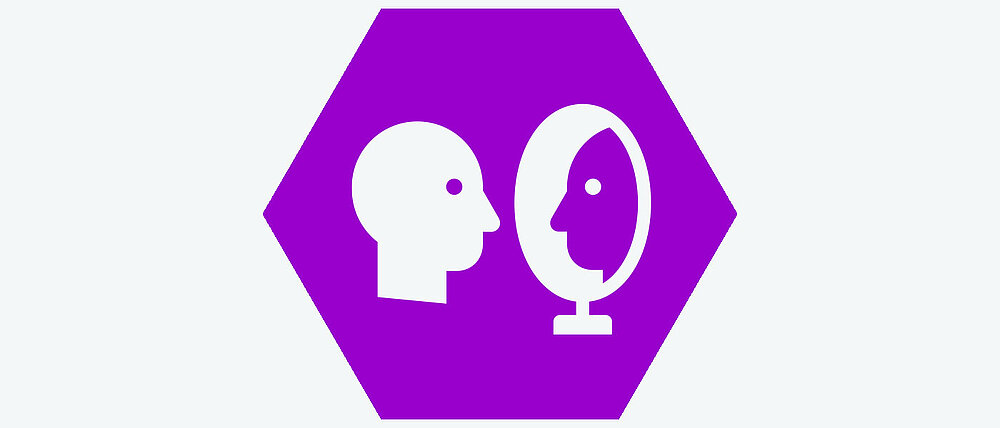
The aim here is to train the development of self-competence as a lifelong process. This involves training the willingness and ability to clarify, think through and assess development opportunities, requirements and limitations as an individual personality, to develop one's own talents and to make and develop life plans. Self-competence includes characteristics such as independence and confidence, the ability to take criticism, reliability, a sense of responsibility and duty. It also includes, in particular, the development of well thought-out values (e.g. on family, career and society) and a self-determined commitment to values.
We recommend conducting a potential analysis at the start of your certificate programme to help you define your profile more precisely.
Professional and methodological competence
Elective area

Here you will learn to train the willingness and ability to solve tasks and problems in a goal-orientated, appropriate, method-led and independent manner on the basis of specialist knowledge and skills and to assess the result as well as to proceed in a goal-orientated and planned manner when working on tasks and problems.
Intercultural competence
Elective area

The module promotes your understanding of the thought and action patterns of your counterparts in awareness of your own culture and the differences to the culture of others. You will learn to recognise, respect, appreciate and make productive use of the cultural conditionality of your own and others' perceptions, judgements, feelings and actions.
Social competence
Elective area

This module is about training a person's reflexive behaviour in relation to their environment. They learn how to live social relationships, exchange information, recognise and understand affections and tensions, deal with others rationally and responsibly and build and maintain social relationships.
Our aim is to prepare you for the global labour market of the future. This is subject to ever faster change. For you, this means that you already have to prepare for professions/professional activities that in some cases do not yet exist. It is therefore becoming increasingly difficult to predict what you will need to enter and succeed in the labour market after graduation. However, there is certainty in the diagnosis that change will bring with it a high level of importance of transversal competences. Creative ability, critical thinking, adaptability, initiative and participatory goal setting are irreplaceable skills that the labour market 4.0 will demand of employees. Social conflicts require "the ability to develop new and previously unknown approaches, to break new ground and to relate previously unconnected things to each other in new ways."
All enrolled students at the University of Würzburg, regardless of semester and degree programme, can obtain the Professional Skills Certificate.
Due to our limited range of English courses, the certificate can currently only be completed in German.
You can apply for the certificate every semester. Ten students are then drawn from the applications.
Application:
- in the summer semester by 15 January
- in the winter semester by 15 July
Procedure
- Fill out the application form (German only)
- Send the application form with your certificate of enrolment to jmu-psz@uni-wuerzburg.de
- After the deadline, we will inform you of your admission by email
The certificate consists of 20 ECTS, which you can acquire within four semesters. Accordingly, 5 ECTS are planned per semester. Each module consists of different courses, which you can choose yourself.
How many of the required ECTS are completed in which semesters is up to you. Unlike other degree programmes, there is no minimum period of study for the "Professional Skills Certificate" - the maximum duration of four semesters does not apply here.
Yes, we also recognise courses that were attended up to one year before the introduction of the additional study programme "Professional Skills Certificate" (WS 25/26).


